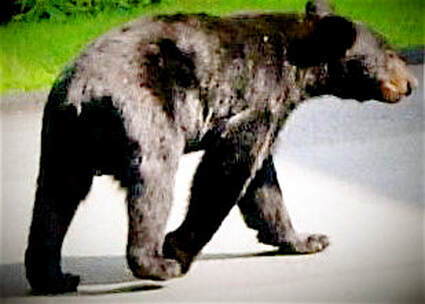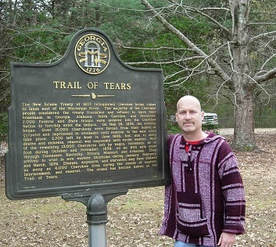|
Despite the many joys that life brings, most of us are pressured to endure something unpleasant during our lifetime. Sometimes it’s our own doing; other times it isn’t.
In the Book of Job, the main character (Job) is a person of great integrity, and yet he seems resigned to the misery that befalls him: “Surely humans are born to distress, just as sparks rise up” (Job 5:7; CEB). We are going to take some serious hits in this life. That is when we will be faced with the noble call to endure. Beginning in the late 1700’s and continuing into the 1800’s, the United States government and her citizens began a series of forced “removals,” or permanent relocation of Native Americans from the southern states to what was then Indian Territory, the other half of Oklahoma Territory before Oklahoma achieved statehood in 1907. In May, 1838, federal troops began seizing control of Cherokees and rounded them up and put them in holding pens until they could be transferred to the west. Many Cherokees endured sickness and disease during this period, and some died because the stockades were infected with deadly viruses such as smallpox. President Andrew Jackson (no relation, trust me), whose portrait now hangs morbidly in the Oval Office, was personally responsible for the many Cherokee deaths that occurred following his signing the 1830 Indian Removal Act. “Light a fire under them; they’ll move,” Jackson is reported to have said. The first detachment on what would become “The Trail of Tears” left in June, 1838, during a horrible drought. Cherokees continued to get sick and die due to the uncompromising heat, and the detachments were postponed until cooler weather. The army was ready to move them again in the fall and as fate would have it, the winter of 1838-39 was one of the coldest on record. On October 11, 1838, the Bell Detachment (one of the many to be moved that winter), containing my great, great, great aunt Mary and her family, began the journey to Indian Territory. Of the 660 or so Cherokees in this detachment, 21 died on the way and were buried in hastily-prepared, frozen graves by the sides of the roads. In other detachments, many more deaths occurred. Those who survived, like Mary, were left in the new territory with little or no sustenance, and many later died as a result of the harsh journey. Moreover, documented cases of rape and other forms of maltreatment point to European and colonial attitudes of superiority that persist today. Mary is one of the ancestors who “speaks” to me, especially when I think I can’t go on. Interestingly, it is often related to another person’s struggle to endure that Mary comes alive and walks with me. As a hospital chaplain, when I would be called to a death—especially the death of a child, and I would struggle with what I could possibly say to the family, Mary would sometimes appear, settle my spirit, and remind me that my presence would be enough. To what have you been called to endure? Are you called to be with others as they endure? If you’re like Job, Mary, and the many saints with whom I’ve had the privilege to share sacred space, I know you will persist. You will endure, my friend, because you are called to do no less.
1 Comment
|
Yona Ambles"YOH-nuh" (yonv) means "bear" in Cherokee. Thanks for visiting! Archives
January 2024
|


 RSS Feed
RSS Feed
